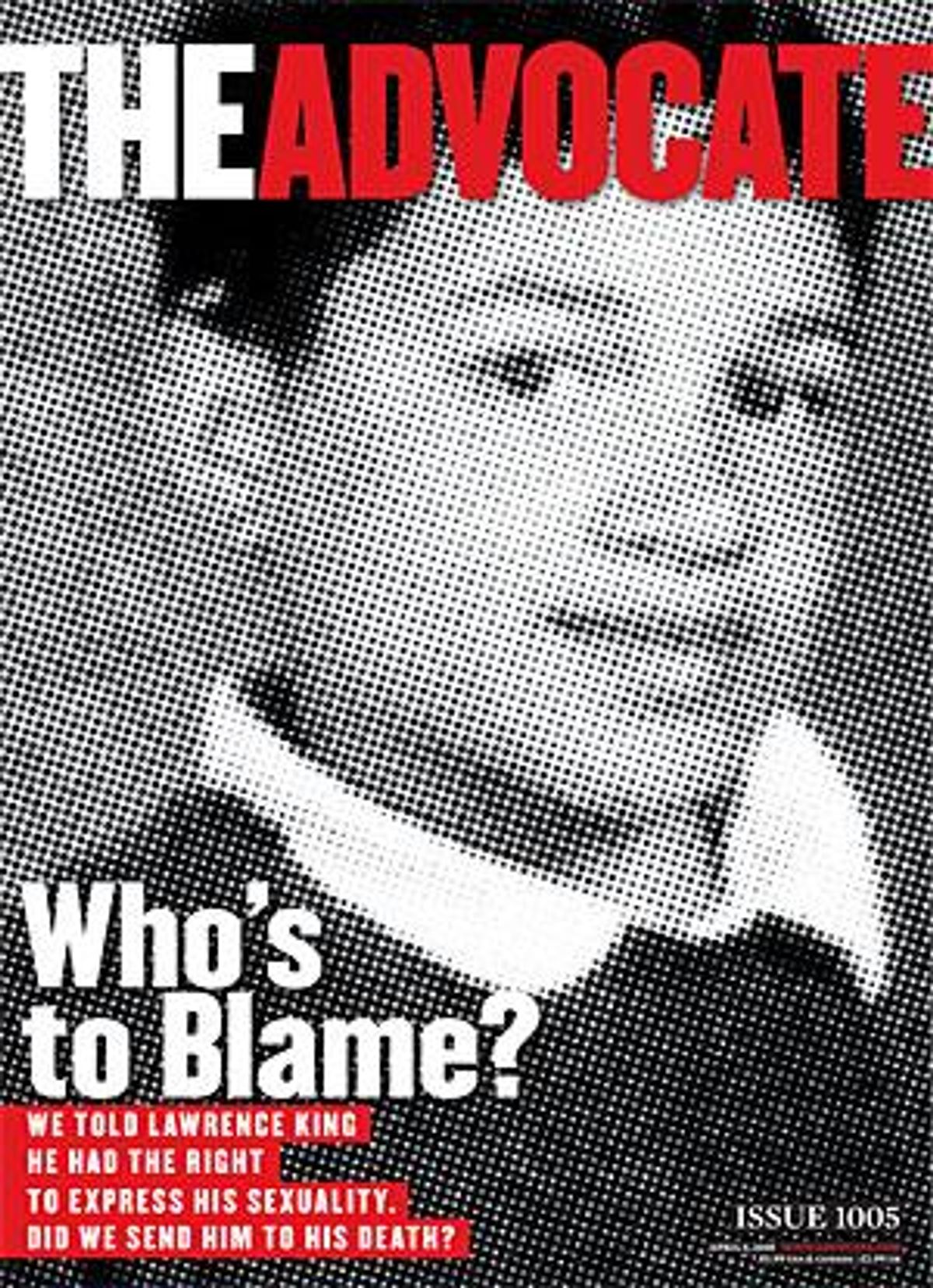A California judge on Thursday postponed the arraignment of 14-year-old Brandon McInerney, charged with premeditated murder with a special hate-crime allegation in the slaying of 15-year-old gay classmate Lawrence King. This is the second postponement in just over a month.
According to witnesses, on February 12, McInerney shot King in the head just as first period began in a packed classroom at E.O. Green Junior High School in Oxnard, a port city of 200,000 about 60 miles north of Los Angeles.
Ventura County superior court judge Kevin McGee continued the arraignment until July 24 to permit McInerney's attorney, Senior Deputy Public Defender William Quest, to file a motion which, if successful, would transfer the case to juvenile court. McInerney has been charged as an adult under Proposition 21, a controversial 2000 law enacted by ballot initiative that affords district attorneys almost unilateral discretion to try juveniles as young as 14 as adults for certain felonies.
In a telephone interview with The Advocate on Wednesday, Senior Deputy District Attorney Maeve Fox, who is prosecuting the case, said that "the biggest, obvious difference" between the juvenile system and the adult system is that the "range of punishment if we keep him in adult court is much broader, and the maximum potential based on the charges that he faces now is 53 [years] to life. Fourteen- and 15-year-olds cannot receive life without the possibility of parole in California."
As for the hate-crime enhancement, Fox said that "as far as the punishment goes, it doesn't add anything significant. It's one, two, or three years additional."
If, on the other hand, McInerney was tried as a juvenile, Fox said, "Based on my experience, I would anticipate that he would be released before the age of 25."
In a courthouse interview with The Advocate on Thursday, Quest said that the basis of his motion, to be filed June 24, will be that "California law allowing the D.A. to...charge Brandon as an adult to result in a 51 [years] to life sentence is cruel and unusual punishment" under the Eighth Amendment to the U.S. Constitution.
Quest acknowledged that previous constitutional challenges to Proposition 21 have failed, but said none have been based on Eighth Amendment grounds. He plans to point to a recent U.S. Supreme Court decision prohibiting the execution of minors. "The reasoning of that we think applies in a life imprisonment case," Quest said. If convicted as an adult, McInerney will not be eligible for parole until he is 65, according to Quest.
Although the Eighth Amendment issue was not discussed specifically, Fox did not think the motion to move the case to juvenile court would succeed, saying she was "fairly confident that the constitutional issues [regarding Proposition 21] have been resolved."
Quest declined to disclose the legal defenses he intends to assert at trial, but did say, "We think there were issues at the school that we don't think were addressed properly.... We're not trying to blame the school...no one wanted this to happen, least of all the school. But...people saw situations arising and they tried to stop it; they were not allowed to. We think that a problem was allowed to fester." Quest said that by "people," he meant teachers.
Before the earlier postponement of McInerney's arraignment on May 8, Quest told the Los Angeles Times that school administrators had allegedly been more interested in protecting King's expression of his sexuality than in addressing the escalating friction between the two boys, which Quest blames at least in part on King's allegedly having flirted openly with McInerney. "We think there will be evidence that the school, with the actions of Larry, didn't quite know how to deal with it," Quest told the Times.
Hueneme School District superintendent Jerry Dannenberg disagrees, telling the Times last month, "School officials definitely were aware of what was going on, and they were dealing with it appropriately."
In an interview with The Advocate in May, Fox said she had not "seen anything that would make me raise an eyebrow about how the school handled" the situation.
Quest also appears poised to base McInerney's defense at least in part on the boy's allegedly troubled childhood. "We will establish that there was addiction on both the mom and dad and domestic violence, and...that had [an] effect on Brandon," he said in an interview with National Public Radio posted online June 9.
On a personal note, Quest said, "I can tell The Advocate I've got a young brother who's gay. I saw how difficult it was for him to come out. Now, he came out when he was in college at Berkeley, [so it was] easier than in junior high. But I saw the struggle he went through...and I hope [this is] not perceived as gay bashing because it's not. That's not who I am."
With respect to the likely trial date, Fox said, "If I base it on regular murder trials, I would say next year sometime."


















































































